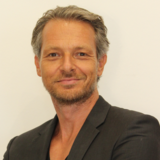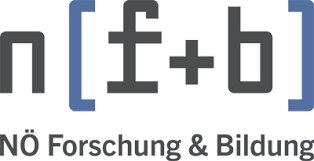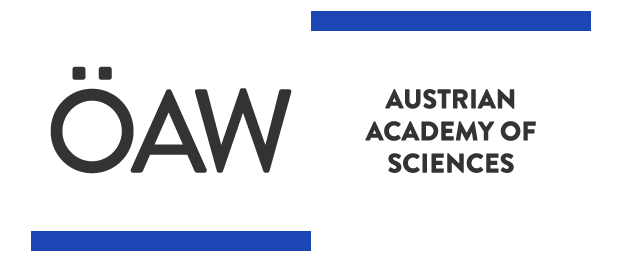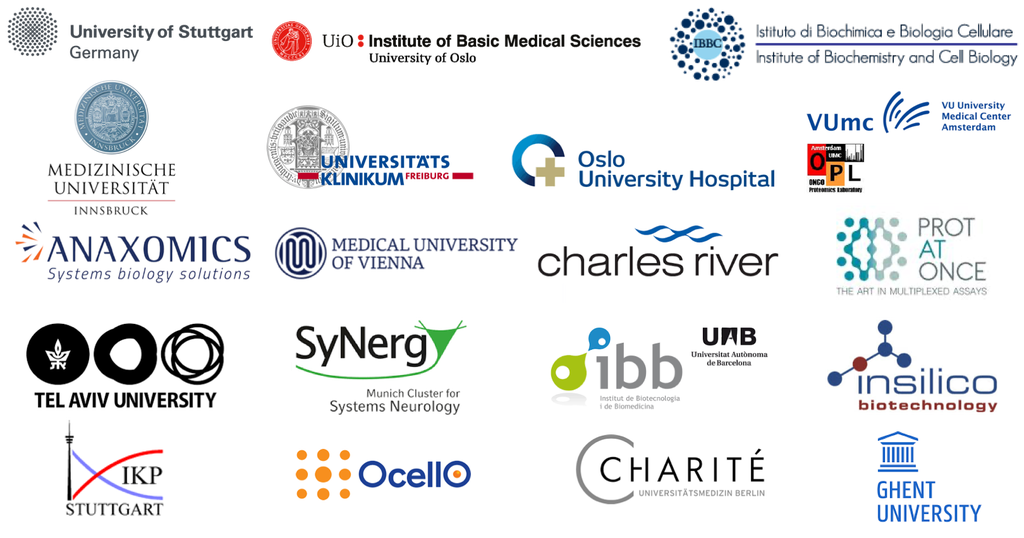
Helmut Dolznig, Assoc. Prof. Priv. Doz. Mag. Dr.
GenetikerTel.: +43 (0)1 40160-56502
E-Mail: helmut.dolznig@meduniwien.ac.at
Tumor-stroma interaction in human cancer
The majority of human tumours are carcinomas (~90%), which develop from epithelial cells by accumulation of mutations, and account for the majority of cancer deaths per year. In carcinomas epithelial structures are always interwoven with fibroblasts, endothelial cells, pericytes and inflammatory cells. These mesenchymal cells constitute the so-called tumour stroma.
There is strong evidence for beneficial stromal influence on tumour development from experimental models. How the tumor stroma is involved in cancer initiation, invasion and metastasis is extensively studied, but so far less clear. Determining the stromal impact on tumour cells, and the reciprocal influence of malignant epithelial cells on the stroma at the molecular level will help to better understand cancer development.
We are specifically interested in the crosstalk between tumour cells and cancer associated fibroblasts (CAFs) and put our focus on colon cancer to determine novel molecular mechanisms in the crosstalk between these cell types. We developed a state of the art three-dimensional co-culture model, which recapitulates many aspects of carcinomas in vivo, and identified well known and novel pathways, which are activated if carcinoma cells interact with CAFs. We focus on the modulation of the wnt/beta-catenin and the PI3K/Akt/mTOR signalling pathways in tumour cell –stromal fibroblast crosstalk and its implications for malignancy.
Original Papers
-
Stadler M, Pudelko K, Biermeier A, Walterskirchen N, Gaigneaux A, Weindorfer C, Harrer N, Klett H, Hengstschläger M, Schüler J, Sommergruber W, Oehler R, Bergmann M, Letellier E, Dolznig H. Stromal fibroblasts shape the myeloid phenotype in normal colon and colorectal cancer and induce CD163 and CCL2 expression in macrophages. Cancer Lett. 2021 Jul 10;520:184-200. doi:10.1016/j.canlet.2021.07.006. PMID: 34256095
-
Unterleuthner D, Neuhold P, Schwarz K, Janker L, Neuditschko B, Nivarthi H, Crncec I,, Kramer N Unger C, Hengstschläger M, Eferl R, Morigg Rl, Sommergruber W,, Gerner C and Dolznig H. Cancer associated fibroblast-derived WNT2 increases tumor angiogenesis in colon cancer, Angiogenesis 2019.
- Stadler M, Scherzer M, Walter S, Holzner S, Pudelko K, Riedl A, Unger C, Kramer N, Weil B, Neesen J, Hengstschläger M, Dolznig H. Exclusion from spheroid formation identifies loss of essential cell-cell adhesion molecules in colon cancer cells. Sci Rep. 2018 Jan 18;8(1):1151.
- Kramer N, Schmöllerl J, Unger C, Nivarthi H, Rudisch A, Unterleuthner D, Scherzer M, Riedl A, Artaker M, Crncec I, Lenhardt D, Schwarz T, Prieler B, Han X, Hengstschläger M, Schüler J, Eferl R, Moriggl R, Sommergruber W, Dolznig H. Autocrine WNT2 signaling in fibroblasts promotes colorectal cancer progression. Oncogene. 2017 May 29.
- Unger C, Kramer N, Unterleuthner D, Scherzer M, Burian A, Rudisch A, Stadler M, Schlederer M, Lenhardt D, Riedl A, Walter S, Wernitznig A, Kenner L, Hengstschläger M, Schüler J, Sommergruber W, Dolznig H. Stromal-derived IGF2 promotes colon cancer progression via paracrine and autocrine mechanisms. Oncogene. 2017 May 22.
- Unterleuthner D, Kramer N, Pudelko K, Burian A, Hengstschläger M, Dolznig H. An Optimized 3D Coculture Assay for Preclinical Testing of Pro- and Antiangiogenic Drugs. SLAS Discov. 2017 Jun;22(5):602-613.
- Riedl A, Schlederer M, Pudelko K, Stadler M, Walter S, Unterleuthner D, Unger C, Kramer N, Hengstschläger M, Kenner L, Pfeiffer D, Krupitza G, Dolznig H. Comparison of cancer cells cultured in 2D vs 3D reveals differences in AKT/mTOR/S6-kinase signaling and drug response. J Cell Sci. 2016 Sep 23.
- Pencik J, Schlederer M, Gruber W, Unger C, Walker SM, Chalaris A, Marié IJ, Hassler MR, Javaheri T, Aksoy O, Blayney JK, Prutsch N, Skucha A, Herac M, Krämer OH, Mazal P, Grebien F, Egger G, Poli V, Mikulits W, Eferl R, Esterbauer H, Kennedy R, Fend F, Scharpf M, Braun M, Perner S, Levy DE, Malcolm T, Turner SD, Haitel A, Susani M, Moazzami A, Rose-John S, Aberger F, Merkel O, Moriggl R, Culig Z, Dolznig H, Kenner L. STAT3 regulated ARF expression suppresses prostate cancer metastasis. Nat Commun. 2015 Jul 22;6:7736.
- Rupp C, Scherzer M, Rudisch A, Unger C, Haslinger C, Schweifer N, Hengstschläger M, Kerjaschki D, Dolznig H*, Garin-Chesa P*. IGFBP7, a novel tumor stroma marker, with growth promoting effects in colon cancer through a paracrine tumor-stroma interaction. Oncogene 2014 Mar 17. *Equally contributing senior authors.
- Dolznig H, Rupp C, Puri C, Haslinger C, Schweifer N, Kerjaschki D and Garin-Chesa P. Modeling adenocarcinomas in vitro: a novel 3D co-culture system induces cancer relevant pathways upon tumour-stroma interaction. Am J of Path, 2011, Jul;179(1):487-501.
Reviews
- Stadler M, Walter S, Walzl A, Kramer N, Unger C, Scherzer M, Unterleuthner D, Hengstschläger M, Krupitza G, Dolznig H. Increased complexity in carcinomas: Analyzing and modeling the interaction of human cancer cells with their microenvironment. Semin Cancer Biol. 2015 Dec;35:107-24. doi:10.1016/j.semcancer.2015.08.007. Epub 2015 Aug 28. Review. PubMed PMID: 26320002.
- Unger C, Kramer N, Walzl A, Scherzer M, Hengstschläger M and Dolznig H. Modeling human carcinomas: Physiological relevant 3D models to improve anticancer drug development. Advanced Drug Delivery Review. Invited review, Adv Drug Deliv Rev. 2014 Dec 15;79-80:50-67. doi:10.1016/j.addr.2014.10.015. Epub 2014 Oct 23. Review.
- Kramer N, Walzl A, Unger C, Rosner M, Krupitza G, Hengstschläger M and Dolznig H. In vitro cell migration and invasion assays, Mutat Res. 2013; 752(1):10-24 (IF 2010: 6.462)
- Fuchs C, Rosner M, Dolznig H, Mikula M, Kramer N, Hengstschläger M. Tuberin and PRAS40 are anti-apoptotic gatekeepers during early human amniotic fluid stem-cell differentiation. Hum Mol Genet. 2012 Mar 1;21(5):1049-61. (IF 2011: 7.636)
- Dolznig H, Walzl A, Kramer N, Rosner M, Garin-Chesa P and Hengstschläger M. Organotypic spheroid cultures to study tumor–stroma interaction during cancer development. Drug Discovery Today: Disease Models 2011. 8(2-3):113-9. (IF 2010: 6.422)
Marie Skłodowska-Curie ITN project

“Exploitation of the SECRETory pathway for cancer therapy to address European research (SECRET-ITN)”
NFB

“Identification of novel combination-therapy drug targets, which work in synergy to mTOR inhibition using physiological human three-dimensional cancer models” (LS09-018)
“The role of REG1A - a gene induced by tumor-stroma interaction - in colon cancer development” (LS10-019)
“The impact of cancer therapeutics on tumor-stroma interaction in colon cancer” (LS18-017)
Current lab members
- Velina Atanasova, Dr. (Postdoc)
- Mario Macia-Guardado, MSc (PhD Student)
- Claudia Weindorfer, MSc (PhD Student and Lab Manager)
- Simone Stang, MSc (PhD Student)
- Tanja Schildorfer, BSc (Master student)
- Tobias Redl, BSc (Master student)
- Simon Etzlstorfer, BSc (Master student)
- Meike Ertl, BSc (Master student)
Visiting scientists and guest researchers
- Eleni Skourti, MSc
- Jakob Allram, MSc (Vetmed Uni Wien, IFA Tulln)
Former lab members
PhD students
- Dr. Daniela Unterleuthner, MSc
- Nina Kramer, MSc, PhD
- Angelika Riedl (former Walzl), MSc, PhD (current address: Boehringer Ingelheim Vienna)
- Mag. Christian Rupp, PhD (part time supervision)
- Mag. Christine Unger, MSc, PhD
Master students
- Janik Klement, MSc
- Carina Peischl, MSc
- Julia Flandorfer, MSc
- Alexander Biermeier, MSc
- Alexandra Burian, MSc
- Nina Kramer, MSc. PhD
- Patrick Neuhold, MSc
- Karoline Pudelko, MSc
- Angelika Riedl (former Walzl), MSc, PhD
- Martin Scherzer, MSc
- Michaela Schlederer, MSc (current address: Inst. of Pathology, MedUni Vienna)
- Daniel Senfter, MSc
- Mira Stadler, MSc, PhD (current address: Inst. of Pathology, MedUni Vienna)
- Simone Stang, MSc
- Stefanie Walter, MSc
- Claudia Weindorfer, MSc
- Maritta Wieselberg, MSc (current address: Inst. of Pathology, MedUni Vienna)
Bachelor students
- Lena Hohl, BSc
- Johannes Schmöllerl, MSc (currently PhD student at the LBI-Cancer Research Vienna)
- Katharina Schwarz, BSc
- Agata Strajeriu, BSc
- Madlen Ungersböck, BSc
- Claudia Weindorfer, MSc
- Elke Wolfinger, BSc
Former visiting scientists and guest researchers
- Alba Casas Pais, MSc, PhD (Instituto de Investigación Biomédica, A Coruña, Spain)
- Dr. Elisabeth Letellier, PhD (University of Luxembourg)
- Zeynep Hazal Yilmaz, MSc, (University of Stuttgart) secondment within SECRET-ITN
- Jaqueline Bersano, MSc (Charles River Laboratories, Freiburg, Germany), secondment within SECRET-ITN






